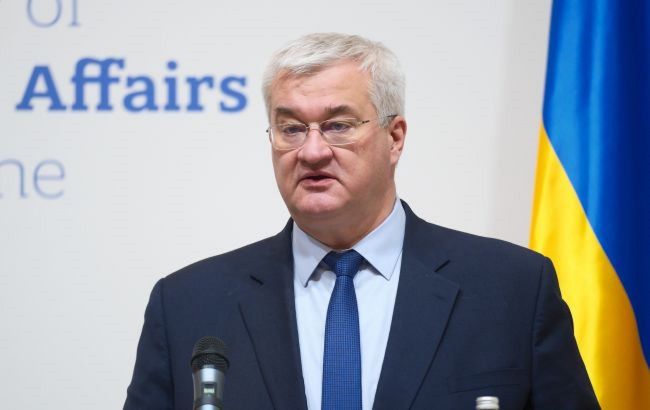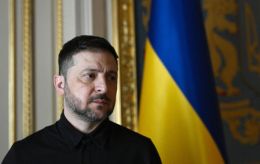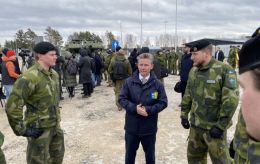Russia refuses ceasefire for 100 days and intensifies terror - Ukraine's FM
 Photo: Ukrainian Foreign Minister Andrii Sybiha (Vitalii Nosach, RBC-Ukraine)
Photo: Ukrainian Foreign Minister Andrii Sybiha (Vitalii Nosach, RBC-Ukraine)
100 days have passed since Russia rejected the US proposal for a complete ceasefire. Ukraine's Foreign Ministry is calling on its partners to force the Kremlin to make peace.
He notes that it has been exactly 100 days since Ukraine unconditionally accepted the US peace offer to fully cease fire, end the killing, and start a genuine peace process.
"It has been exactly 100 days since Russia has been rejecting this basic first step toward peace. 100 days of Russian manipulations and missed opportunities to end the war. 100 days of Russia escalating terror against Ukraine rather than ending it," Sybiha says.
At the same time, the Foreign Minister emphasizes that Ukraine remains committed to peace.
"Unfortunately, Russia continues to choose war, disregarding U.S. efforts to end the killing," he writes
The Minister emphasizes that there is no more time to delay and called on partners to respond decisively through sanctions pressure and increased support for Ukraine.
"It is time to act now and force Russia to peace," Ukraine's Foreign Minister adds.
US attempts to end Russia's war against Ukraine
In recent months, the United States has held a number of separate meetings with representatives of Ukraine and Russia. During one of them, Washington offered Kyiv a complete ceasefire. Ukraine, in turn, supported the proposal.
However, the Kremlin did not give its direct consent. At the same time, the Russians put forward a number of additional conditions, including the cessation of mobilization and the halt of supplies of Western weapons to the Ukrainian Armed Forces.
In addition, yesterday, Russia's Vladimir Putin said at a meeting with journalists that he was ready to meet with everyone, including Zelenskyy. But he once again mentioned the narrative of so-called illegitimacy, which is an attempt to justify the Kremlin's unwillingness to truly engage in peace talks.

